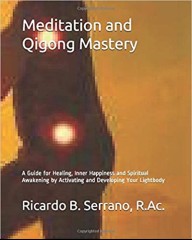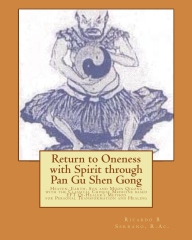China’s W. PH Sea Karmic Repercussions

Xi Ji Ping of Chinese Communist Party
“If you know the enemy and know yourself, your victory will not stand in doubt; if you know Heaven and know Earth, you may make your victory complete.” – Sun Tzu, The Art of War
“Deng Xiaoping dealt with some of his problems by saying not every problem needs to be solved in the existing generation,” US Secretary Henry Kissinger said of the former Chinese leader. “Let’s perhaps wait for another generation but let’s not make it worse.”


“China has been rushing construction projects, including massive land reclamation, in the disputed South China Sea in hopes of forestalling any legal moves against its vast territorial claims,” DFA Albert del Rosario said..
“It reaffirms the belief that no country in the world recognizes that the 9-dash line is a valid claim on the part of China,” DFA Albert del Rosario said.
“We really have no choice: We have to destroy these future Chinese military bases now.” – Ted Laguatan
After China shall have garrisoned the disputed areas in the South China Sea, Acedillo said the arbitration decision and whatever its worth legally, will be irrelevant. The arbitration case will at the end of the day prove to be a policy of no strategy. “How poorly we have prepared for an eventuality of a challenge to the occupation of our islands,” Rep. Francisco Acedillo said.
“I urge the National Security Council – President Aquino, Sir – please convene already and tackle this impending existential threat to our country’s territory, sovereignty and economic well-being,” Rep. Francisco Acedillo said in a privilege speech late Monday.
“Mark my words … when the Chinese forts and garrisons become online later this year or early next year, tell me if I will be the Boy Who Cried Wolf,” he said. “For I tell you, the wolves will come, and they will come, and they will be from China.”
“China’s construction activities in the West Philippine Sea are a violation of the United Nations Convention on the Law of the Sea (UNCLOS).” – Herminio Coloma of Malacanang
“China’s grand claim to cover almost the entire South China Sea, and all the maritime features therein, has no basis in international law,” Associate Justice Francis Jardeleza said.
American senators said that without a comprehensive strategy “long-standing interests of the United States, as well as our allies and partners, stand at considerable risk.”
They said China’s land reclamation and construction in the South China Sea’s Spratly archipelago gave it the potential to expand its military reach and was “a direct challenge, not only to the interests of the United States and the region, but to the entire international community.”
The senators, who head the Senate Armed Services Committee and the Senate Foreign Relations Committee, said the strategy should lay out “specific actions the United States can take to slow down or stop China’s reclamation activities… .”
“Vice Adm. Millan [said] that for this ‘resource intensive initiative’ to work, all countries concerned should agree in working together in protecting the ‘Freedom of Navigation’ or the safety and security of seaborne trade and international shipping,” read the online report from radio station DWDD. See US 7th Fleet would support ASEAN South China Sea Patrols
Commentaries, and the latest news updates to Blockades by China to follow in West PH Sea:
Despite China’s acts of war such as military coercion, cabbage tactics and land grabbing, cyber attacks, blockades by Chinese Coast Guard in the West Philippine Sea and not following the UN international law of the sea (UNCLOS) by its massive reef reclamation in the Spratlys, I believe that a karmic thing is happening behind the scenes – I call karmic repercussions – within China led by atheist Chinese Communist Party (CCP).
Karma is simply the golden rule: “Don’t do unto others what you don’t want others to do unto you.” It is nature’s way of balance – law of cause and effect – what you give is what you receive. What you sow, you reap.

Karmically, let us not blame China alone but also blame the self-serving senators in the Philippines government for their noticeable silence and passivity in the Chinese invasion of Philippine territories.
With most Filipinos’ frustration on the corrupt Philippine senators who plundered money from pork barrel, we can add that not a single Philippine senator has stood up on the Senate floor to condemn China’s massive land reclamation of Philippine territories in the West Philippine Sea growing 11-fold.
They are not swayed by the fact that, in a nationwide poll conducted by Social Weather Station (SWS) from December 2013 through January 2014, “an overwhelming majority of Filipinos (93 percent) back the government’s efforts to defend the national territory” against China.
That’s right folks, the only senators willing to criticize China for invading Philippine territory are in Washington, DC. In their letter, the four US senators (John McCain, Robert Melendez, Jack Reed and Bob Corker) expressed grave concern about China’s land reclamation and construction in the West Philippine Sea. “While other states have built on existing land masses, China is changing the size, structure and physical attributes of land features themselves. This is a qualitative change that appears designed to alter the status quo in the South China Sea,” they wrote. See Cowardly senators
I believe that given time, depending on the change of face by the Philippine senators’ stand against China, there is still hope for China’s CCP to change for the better in due course because of public opinion, impending military retaliation by US-Japan led coalition and negative karma manifested caused by military coercion or force, and especially attain world peace via people power and the power of meditation on three hearts to avoid a senseless war with the military capable US-Japan alliance and the ASEAN countries over the sea dispute (Chinese Containment Coalition).
Because of China’s massive reef reclamation in the Spratlys, the ASEAN maritime South China Sea patrol force with U.S. 7th Fleet involvement would certainly flare Chinese tempers and hinder its 9-dash line historical claim.
The US military has regularly conducted operations disputing some of China’s maritime claims in recent years and did so again in 2014. A US official, speaking on condition of anonymity, said none of those claims were related to Beijing’s dredging to create islands out of reefs in the South China Sea.
The official said China has not attempted to assert maritime claims around those newly created islands and would not be able to do so under international law.
“Under international law an island is a naturally formed feature, and it specifically says in international law that an artificial island is not entitled to a territorial sea,” the official said. Any effort to create a maritime zone around those former reefs would be “a legal impossibility,” he said.
The United States carries out freedom of navigation operations by sending Navy ships and military aircraft into maritime areas that nearby countries have tried to restrict in some way. The operations aim to show that the international community has not accepted the restrictions.
The following news updates and articles support and explain my hypothesis on China’s karmic repercussions:
Made in China isn’t selling in China
The Chinese regime’s plans to create a middle class of consumers is facing a bumpy road. Rather than spend their money on Chinese products, wealthy Chinese are traveling abroad to buy everything from baby formula to toilet seats.
It was in November 2012 when the leader of the Chinese regime, Xi Jinping, first mentioned the “Chinese Dream.” Faced with a country riddled with corruption and a growing economic bubble, he grew this concept into a plan two years later to build a Chinese middle class that would become the cornerstone of society.
The “Chinese Dream” proposed by Xi was later described by Cheng Li, director of research and a senior fellow at the John Thornton China Center of the Brookings Institution, according to the state-run Xinhua news agency, as “a blueprint for an expanding middle class in China.”
Behind the visage of China being an economic powerhouse and a global manufacturing center, is a country slowly losing its economic glamour as its economy slows down. A core problem is that Chinese people do not have any faith in products “made in China.”
See Made in China isn’t selling in China and its affecting the economy
Made in China goods tops EU list of unsafe products
On the ground data confirms China slowdown
US companies leave China
Failed dreams and broken promises are all that remain of the hope that led the United States to open free trade with China in 2001.
President Bill Clinton had told a crowded room a year prior that “if you believe in a future of greater openness and freedom for the people of China, you ought to be for this agreement.” The decision had bipartisan support, and leaders in the United States shared the belief that with the fall of the Soviet Union trade with China would help it move to democracy and freedom.
Rather than China becoming more free and democratic, many U.S. and Western companies have instead bowed to China’s interests, and many others have faced severe economic harm.
Open trade “didn’t make them more democratic,” said Peter Navarro, director of the film, “Death by China.” Instead, “it made them a more efficient authoritarian machine.”
But now, a change may be happening. Many large companies have begun to feel the impact, and many are now pulling out from China. Best Buy announced on Dec. 4 that it would sell its 184 stores in China and leave the country. It now joins other companies that left China, including Google, Home Depot, Metro, Media Market, Adidas, Panasonic, Rakuten, Nestle, and Danone.
See Amid failed promises of reform US companies leave China
What Are China’s Main Problems?
The problems of China are chronic problems, they are not acute problems. This isn’t a Greece or a Dubai where they need to refinance in a currency they cannot print.
The problems China has are long-term structural issues of a model that has fundamentally run its course.
It’s not to say that things will stop or that they will collapse. And when I say collapse I am talking about a government default, a bank default, a 30 percent devaluation of their currency. These types of things you see in other collapsing economies, I don’t see that happening.
The Chinese government still has a lot of control over capital flows. It clearly has all the levers of power when it comes to the domestic financial sector. It also has tremendous control over information.
But There Is a Price to Pay
What they cannot do, they fundamentally cannot make bad projects good projects. If you built an apartment block in the middle of the desert and no one wanted to live there, you are going to lose money on your project. Even if you move people there you are going to attract them by either subsidies or cheap rents so therefore your financial return is going to be lower.
So all of a sudden, instead of your company making a 10 percent return, it is making a 1 percent return. That cannot be avoided and this is where we are at in China.
See China’s obsolete growth model
What About the Political Situation in China Today?
The narrative out there is that Xi Jinping and his anti-corruption drive is all about breaking down vested interests and laying the framework for clearing the decks.
People think he will allow a clear reform push, that he is actually going to really push through a lot of these third plenum pledges for the market to take the first role and the state the second role. Today there is very little evidence of that. There is hope rather than concrete evidence of it.
Wherever you look, around Xi, there are hard lines everywhere. There is a hard line taken in Tibet; there is a hard line taken in Jinjiang [South China, the locality of a recent labor dispute]; there is a hard line taken in Hong Kong.
Hong Kong is seen as a victory for the CCP in the sense that the streets are cleared and they haven’t given any ground. I think it’s a disaster for the people in Hong Kong because you just alienated a large portion of the population and you have shown that the “one country, two systems” model is highly flawed.
And yet what does Xi do? The same week of the Hong Kong protests, he turns around and tells Taiwan that the only way to reunify with Taiwan is through the “one country, two systems” policy, which the Taiwanese don’t like at all.
See Chinese leader preaches peace at major Asian forum
China’s messy power politics
Hong Kong reports: Asset disclosure by top Chinese officials spells trouble for propaganda chief
Can You Explain Why Some People Think China is Already the World’s Largest Economy?
There is a huge assumption about the purchasing power parity principle these people use and it is usually not stated. It’s underlying the whole principle: The only thing that is different in the economies about the goods and services within is the price and not the quality.
You can get a haircut in Beijing for 5 yuan (US$.80) or 10 yuan (US$1.60) yet in New York it’s $20. Well actually on 5th Avenue it’s $75 and in Brooklyn its $25. So are you going to have purchasing power parity between Brooklyn and Manhattan as well?
There is far more difference when it comes to services regarding quality. The assumption to rescale the prices to get a fair comparison is possible if you do it with a similar group of economies, like the Scandinavian countries.
What About China?
I think in the Chinese case, this is a rather stupid comparison. But let’s say the Chinese economy is bigger than the United States by any kind of measure. Well, it does have four times the people. Simply being big is not the be-all and end-all of everything.
Chinese goods and services are maybe worth 50 percent of U.S. goods and services. You can always see it when things go wrong. Providing a basic service, generally they can do that. If there is a fault, the aftercare service or the follow up is dubious. I use some Chinese software products and the coding is poor. And that leads to poor after sales service.
See China’s financial paradoxes
China is not the world’s largest economy
Bye-bye, Beijing
Some expatriates are considering leaving China for good.
J. Kim, a Korean who has worked there for more than 10 years, said he developed rhinitis and asthma during his most recent stint in Beijing, as a result of breathing its polluted air.
When pollution levels reached a record in January 2013, a phenomenon dubbed the “airpocalypse”, Kim decided to leave. He sent his children to South Korea last year and will join them as soon as his company, a maker of electric vehicles, finds him a suitable post back home.
“For Chinese there’s nothing they can do, but as a foreigner I have the choice to live here or somewhere else,” he said.
Rising public discontent over the state of the environment has proved a powerful catalyst for change amid signs the government is starting to take the environment seriously.
China will “declare war on pollution,” Premier Li Keqiang told parliament in an opening address in 2014. A tougher environmental law took effect on Jan. 1, while a new environment minister took charge on Friday.
But citizens must push harder to ensure environmental measures triumph over business interests, one expert said.
“In China, what we need is wide participation from society, and monitoring from the public to make sure the laws are implemented,” said Ma Jun, founder of the Institute of Public and Environmental Affairs.
For now, Liu sees no silver lining in Beijing’s toxic cloud.
“It’s very unlikely we’ll see the pollution issue being solved in the next 10 years,” he said. “It’s not realistic.”
See Superbugs could kill a million Chinese a year: economist
Beijing residents gasp for fresh air in the city of smog
Chinese communist officials turn to monks for advice
Not content with the Communist Party’s Marxist atheism, many officials in the Chinese regime seek out the friendship and services of Buddhist monks and Daoist mystics to help them through their tumultuous careers. The officials are in it for advice, good fortune, and even clemency for misdeeds.
While monks and Daoist cultivators of antiquity may have kept away from the chaos of the secular world, their modern counterparts, branded by official Communist ideology as “superstitious,” have turned the position into a profitable line of work.
According to the Hong Kong-based Phoenix magazine, Yang Weize, the ousted municipal Communist Party secretary in eastern China’s city of Nanjing, maintained a close relationship with Buddhist abbot Shi Chuanzhen. Following Yang’s downfall at the hands of the regime’s disciplinary agency, Phoenix released a number of photos showing the party boss and Buddhist monk together.
Shi told the Southern Weekly, a Chinese newspaper, that officials would come to him for consultation about their troubled careers or lives, or seek advice for the auspicious scheduling of events such as weddings.
See Chinese communist officials turn to monks for advice
CCP, an officially atheist political party
The Chinese Communist Party has admitted details of its ailing policy against religious belief in an article published in a Party journal recently: according to an official quoted in the piece, the nation’s believers are expected to abandon their “superstitions,” and adopt the Party’s “correct world view.”
In the latest issue of Study Times, an ideological journal published by the Central Party School, the regime’s religious affairs minister, Wang Zuoan, said that China’s prosperity has been accompanied by a huge increase in religious belief, which he thinks is due to a need for reassurance in a complex modern world.
The CCP maintains its position as an officially atheist political Party, whose stated guiding ideology is an unwieldy combination of Marxism-Leninism, Mao Zedong Thought, Deng Xiaoping Theory, and the “Three Represents” of former Party leader Jiang Zemin.
Echoing his training in the communist canon, Wang expressed surprise that religion still held appeal in a wealthier China. “After over 30 years of reform, and after the common people have become materially better off, and their education level has increased, not only has religious belief not weakened, but it has gone through a rejuvenation.”
See An Atheist Party’s Response to Religion: More Political Thought Work
Chinese quit Communist Party
Members of the Chinese Communist Party are leaving the party by the tens of thousands, like the grains of sand slipping through the CCP’s hourglass.
An event to support the 138 million Chinese who have quit the Chinese Communist Party (CCP) and its affiliated organizations was held in front of the United Nations building in New York City on May 17. Hundreds of people, most of them Chinese, filled Dag Hammarskjold Plaza quietly holding banners, while speakers took turns at the podium, engaging the audience on what the Quitting the CCP movement really means for China today.
The “Tui Dang,” or “Quit the Party” movement is an embodiment of nonviolence and an awakening of conscience that is changing China. Introduced in November 2004 after an editorial series published by the Chinese edition of The Epoch Times revealed an uncensored history of the CCP, people began quitting by the tens of thousands, recording their decisions on a website maintained by supporters of the movement.
“In this way, the communist organization is quietly collapsing,” said Yi Rong, chair of the Global Service Center for Quitting the CCP.
See Chinese quit Communist Party, heralding a new China
The Case for Archipelagic Defense
Beijing’s expanding territorial claims threaten virtually every country along what is commonly known as “the first island chain,” encompassing parts of Japan, the Philippines, and Taiwan – all of which Washington is obligated to protect. But to reliably deter Chinese aggression, the Pentagon will have to go even further. Emerging Chinese capabilities are intended to blunt Washington’s ability to provide military support to its allies and partners. Although deterrence through the prospect of punishment, in the form of air strikes and naval blockades, has a role to play in discouraging Chinese adventurism, Washington’s goal, and that of its allies and partners, should be to achieve deterrence through denial – to convince Beijing that it simply cannot achieve its objectives with force.
Leveraging the latent potential of U.S., allied, and partner ground forces, Washington can best achieve this objective by establishing a series of linked defenses along the first island chain – an “Archipelagic Defense” -and, in so doing, deny Beijing the ability to achieve its revisionist aims through aggression or coercion.
DETERRENCE THROUGH DENIAL
If Washington wants to change Beijing’s calculus, it must deny China the ability to control the air and the sea around the first island chain, since the PLA would have to dominate both arenas to isolate the archipelago. The United States must also integrate allied battle networks and strengthen allied capabilities – both of which will help offset the PLA’s efforts to destabilize the region’s military balance. By and large, those goals can be achieved with ground forces, which would not replace existing air and naval forces but complement them.
When it comes to air defenses, states along the first island chain could buttress their ability to deny China access to airspace by employing army units equipped with highly mobile and relatively simple short-range interceptor missiles (such as the Evolved Sea Sparrow, supported by GIRAFFE radar systems to detect targets). The U.S. Army, meanwhile, along with such allies as Japan, could operate more sophisticated, longer-range systems capable of intercepting Chinese cruise missiles and destroying advanced Chinese aircraft. Although not part of the first island chain, Vietnam is already enhancing its air-denial capabilities and could contribute to a larger defense effort.
Then there is the task of denying the PLA the sea control it would need to mount offensive operations against the islands. Senior members of Congress have encouraged the U.S. Army to consider resurrecting an artillery force for coastal defense, a mission it abandoned after World War II.The idea is simple and compelling. Rather than risk sending warships within range of PLA defenses or diverting submarines from higher-priority missions, the United States and its allies could rely on ground forces, based along the first island chain and armed with mobile launchers and antiship cruise missiles, to perform the same operations. Japan’s military has done exactly that, placing shore-based antiship cruise missile units on some of the Ryukyu Islands during military exercises. Vietnam has fielded similar systems. And other frontline states could follow suit, either independently or with U.S. funding, training, and technical assistance.
See How to Deter China: The Case for Archipelagic Defense


Destroy Chinese military bases now
These future Chinese military bases are the guns meant by China’s leaders to possess global political power – an extremely perilous situation for all the countries in the region. American economic and military interests are also at risk – as well as regional stability. As such, these affected countries also don’t want these bases to be constructed. Not only will they be sympathetic to the Philippines destroying these future bases, they will support it.
The Philippines must request from her mutual security partners the means to destroy these future bases now and assurance of full support against retaliation. Enough persuasive reasons can be presented to the leaders of the U.S. Japan and Australia – to provide to the Philippines the needed planes, smart powerful bombs, drones and technical advice.
After these bases are destroyed, the U.S., Japan, Australia, the Philippines and other allies must immediately announce this message or something similar – to the world and to China:
“In its legitimate exercise of self defense – the Philippines has destroyed future Chinese military bases deep within Philippine territory being illegally constructed by China on Philippine atolls and islands in violation of international law. Not only is the national security of the Philippines threatened by these future military bases, they also threaten the national security of several surrounding countries: Vietnam, Indonesia, Malaysia, Brunei, Japan, Palau, Taiwan, Cambodia, South Korea, Thailand, Laos, Myanmar and Singapore.
If China retaliates against the Philippines in any manner or form – military, economic or otherwise – she will face the same retaliation from the United States, Japan, Australia, Vietnam and other allied nations.”
With this fair warning, if she still retaliates, China risks annihilation – military, economic or otherwise.
We really have no choice: We have to destroy these future Chinese military bases now.
Cowardly Philippine senators
One threat involves the seizure of territory from our homeland while the other involves the carving of a homeland out of our territory.
These two divergent threats converged on the same day, March 19, when 20 Philippine senators in Manila issued a Mamasapano report which undermined Pres. Aquino’s proposed peace agreement with a Filipino Muslim group seeking to create a Bangsamoro homeland within the Philippines, while in Washington DC, four US senators wrote a letter to the US secretaries of State and Defense to denounce China for its invasive land reclamation activities within the Exclusive Economic Zone (EEZ) of the Philippines.
Remarkably, these US senators are four more than the total number of Philippine senators who have denounced China’s invasion of Philippine territory. Not a single Philippine senator has stood up on the Senate floor to condemn China’s massive land reclamation of Philippine territories in the West Philippine Sea growing 11-fold: 28 acres (114,000 square meters) in Burgos Reef (Gaven Reef); 25 acres in Mabini Reef (Johnson Reef) and increasing Kagitingan Reef (Fiery Cross Reef).
They are not swayed by the fact that, in a nationwide poll conducted by Social Weather Station (SWS) from December 2013 through January 2014, “an overwhelming majority of Filipinos (93 percent) back the government’s efforts to defend the national territory” against China.
That’s right folks, the only senators willing to criticize China for invading Philippine territory are in Washington, DC. In their letter, the four US senators (John McCain, Robert Melendez, Jack Reed and Bob Corker) expressed grave concern about China’s land reclamation and construction in the West Philippine Sea. “While other states have built on existing land masses, China is changing the size, structure and physical attributes of land features themselves. This is a qualitative change that appears designed to alter the status quo in the South China Sea,” they wrote.
“It is our understanding that the majority of this work has been completed in the past twelve months alone, and if current build-rates proceed, China could complete the extent of its planned reclamation in the coming year,” the letter added.
EDCA is the Enhanced Defense Cooperation Agreement between the US and the Philippines, which will allow the U.S. military to have access to Philippine bases across the Philippines archipelago for a 10-year term “on a temporary and rotational basis.” The Philippine government views the presence of these U.S. troops as deterrence to China’s territorial ambitions.
Philippine senators have been quick to denounce EDCA for violating the Philippine Constitution, which prohibits the establishment of foreign military bases in the Philippines. But none of them have denounced China for installing as many as eight military bases on Philippine soil.
Why are these Philippine elected officials so fearful of criticizing China?
Many of these senators fear that they may not be able to visit China. More importantly, these politicians rely on the financial support of Chinese-Filipino (“Chinoy”) taipans. Among the top Chinoy billionaires are Henry Sy, Lucio Tan, Andrew Tan, John Gokongwei, Jr., Tony Tan Caktiong, Ben Chan, Edgar Injap Sia and Ramon Ang. They own the largest corporations in the Philippines from SM to Jollibee.
Many of them have billions of dollars of investments in China such as the Eton Hotel in Shanghai, which is owned by Lucio Tan. Due to their heavy investments in China, these taipans will be very receptive to any “suggestions” from the Chinese government as to which Philippine candidates to support or not support.
Ph will soon be in China’s EEZ
Professor Richard Heydarian of the International Relations Department at the Ateneo de Manila University believes that China is changing the facts on the ground by reclaiming and occupying disputed waters and land features.
“The way China looks at this is, down the road, they have to face the legal opinion arbitration. And if you look at the recent trends in international arbitration, they give priority and prerogative to the countries who continue to establish and exercise effective and continuous sovereignty. If China will be able to build structures there, and they turn these structures into islands and project into 200 nautical mile economic zone, somehow they’ll be able to argue this legally.”
China stationed two hydrographic ships in Recto Bank in August 2014 and has ignored demands by Pres. Aquino to withdraw its invading ships immediately as Recto Bank is only 80 miles from Palawan well within the 200 mile EEZ of the Philippines. Recto Bank reportedly has 50 billion barrels of oil and 16.612 trillion cubic feet of natural gas underneath it, enough to fuel China’s energy needs for the next century.
The only Philippine military presence near the Recto Bank is a small detachment of Philippine marines stationed on a grounded ship, the Sierra Madre, by Ayungin Reef which is the gateway to the Recto Bank. China has surrounded the Ayungin Reef with at least six ships blocking Philippine Navy access to the Sierra Madre. Employing this “cabbage strategy,” China sees itself occupying the Ayungin within a year.
Once China completes making Chinese “islands” out of the Philippine shoals, China will soon claim that Recto Bank is within its EEZ. After that, China will make the same claim for Palawan and the rest of the Philippines will follow.
By then, the contentious issue of whether Bangsamoro is a homeland within the territory of the Philippines will be moot.
Perhaps by then, one Philippine senator will stand up to denounce China.
See Cowardly senators
Catapang: Battle for West Philippine Sea not yet over
Checkmate: PH has lost West PH Sea to China, analysts say
Destroy Chinese military bases in PH now!
Even if it wins arbitration case, PH won’t still be able to expel China from West PH Sea
US Senators want comprehensive response
United States lawmakers demanded that Washington and its allies develop and implement a “comprehensive strategy” to address China’s “coercive” island-building.
In a recent joint letter addressed to Secretary of State John Kerry newly installed Defense Secretary Ashton Carter, senators Jack Reed, John McCain, Robert Menendez and Bob Corker said China’s massive reclamation activities in the crucial waterway can jeopardize the future of the US and its allies, which includes the Philippines.
“China’s deliberate effort to employ non-military methods of coercion to alter the status quo, both in the South China Sea and East China Sea, demands a comprehensive response from the United States and our partners,” the senators said in the letter dated Mar. 19, 2015.
Reed is a senior member of the Senate Armed Services Committee chaired by McCain. Corker, meanwhile, chairs the Senate Foreign Relations Committee, of which Menendez is a member.
China had expanded to maritime features 1,000 miles from its baseline, in waters within claims of exclusive economic zones and jurisdiction of the Philippines, Vietnam, Malaysia, Brunei and Taiwan.
The senators warned against China’s abilities to militarize the artificial islands and boost its legal claims over the contested waters.
The new land features, moreover, could improve the Asian powerhouse’s fishing activities and host warships and fighter jets.
“It could embolden China to declare an Air Defense Identification Zone (ADIZ) in all or part of the South China Sea,” the senators wrote.
See US Senators: China should stop reef reclamations
ASEAN’s geopolitical arrangement vis-a-vis the Chinese Containment Coalition
US senators want comprehensive response vs China Sea coercion
Japan may give military support to US in South China Sea: Duowei
US 7th Fleet would support ASEAN South China Sea Patrols
Ame”rican senators seek US strategy to stop China’s South China Sea reclamation
US should slow or stop China’s island building: SASC, Foreign Relations leaders
Japan to expand SE Asia security ties with Indonesia pacts
US 7th Fleet would support ASEAN South China Sea Patrols
The head of U.S. naval forces in the Western Pacific said the U.S. would support an emerging plan to create multi-national patrols in the South China Sea that could bear similarities to anti-piracy patrols in the Strait of Malacca.
During a meeting this week with naval leaders from Association of South East Asian Nations (ASEAN) U.S. 7th Fleet commander Vice Adm. Robert Thomas said the U.S. would back a combined ASEAN maritime patrol in the hotly contested region.
“Perhaps easier said than done, from both a policy and organization perspective, such an initiative could help crystallize the operational objectives in the training events that ASEAN navies want to pursue,” Thomas said at a panel session with navy chiefs quoted by news service Bloomberg.
“If ASEAN members were to take the lead in organizing something along those lines, trust me, the U.S. 7th Fleet would be ready to support.”
Pentagon officials gave the plan a tacit endorsement in a Friday statement to USNI News. “The Department welcomes collaborative efforts to bolster maritime security in the Asia-Pacific, including ASEAN-led efforts. We believe that close cooperation between and among ASEAN member-states is critical to sustaining peace and prosperity in the region,” Pentagon spokeswoman Henrietta Levin said in a statement.
“However, at this time, we are not aware of any specific plans or proposals by ASEAN countries to develop a combined maritime force.”
Any maritime patrol force with U.S. involvement or approval would certainly flare Chinese tempers.
The South China Sea contested territorial claims have been a constant issue between ASEAN countries and China.
See US Admiral threatens Beijing over South China Sea
Japan and US look to extend naval missions after law change
US 7th Fleet would support ASEAN South China Sea Patrols
PN supports proposed joint sea patrols
The leadership of the Philippine Navy is amenable to the suggestion by the Vice Admiral Robert Thomas, Commander of the US Navy Seventh Fleet, for the conduct of joint sea patrol by Asian nation within the South China Sea.
Philippine Navy Flag Officer in Command (FOIC) Vice Admiral Jesus Millan said that this concept is not far from the Malacca Strait Patrol Scheme that is used to fight piracy within the seas bordering Malaysia, Indonesia, Singapore and Thailand. And is now being expanded to other concerned nations as observers.
VAdm Millan added that for this “resource intensive initiative” to work, all countries concerned should agree in working together in protecting the “Freedom of Navigation” or the safety and security of seaborne trade and international shipping
The program must also be governed by a collaborative mechanism or a Standard Operating Procedure.
See PN supports proposed joint sea patrols of Asian nations in the S. China Sea
Latest articles on karma and news updates about China’s atheism, pollution, economy, politics, Chinese products and US companies leaving China with US alliance vs China:
US Admiral threatens Beijing over South China Sea
Philippines acquisition of F16-V fighter jet from the US, blocked by China
China objects after US fighter plane land in Taiwan
Cowardly senators
China building Great Wall of Sand
Japan and US look to extend naval missions after law change
US to move Stealth Destroyers to Pacific region
US admiraL sounds the alarm of China’s intentions in South China Sea
As China expands its navy, the US grows wary
Construction on the high seas adds to Asian maritime tensions
Palace: Philippines to follow on UN timetable arbitration case vs China
AFP urges UN to immediately act on PH protests vs China
US Senators: China should stop reef reclamations
China reclaiming 7 islands in Spratlys
Look: Military gets brand new cargo planes
AFP chief: Defense spending should be 1% of Philippines budget
Catapang: Battle for West Philippine Sea not yet over
AFP chief: China doing reclamation work in 3 areas within PH exclusive economic zone
Kissinger urges China, US to heed Deng’s advice to calm tensions
ASEAN’s geopolitical arrangement vis-a-vis the Chinese Containment Coalition
How Vietnam became the Pressure Point of Obama’s Pivot to Asia
Vietnam has much at stake in South China Sea
DFA: Philippines maintains claim on Sabah
PH offers Sabah to win Malaysia’s support for UN case vs China
PH asserts rights in disputed sea
Philippines hits back at Beijing over South China Sea
Philippines dismisses China concerns over South China sea military repairs
China seriously concerned by PH construction works in South China Sea
US, China heading towards face-off, says Mearsheimer
Let’s Lock in the Rebalance to Asia
Checkmate: PH has lost West PH Sea to China, analysts say
PH welcomes calls in US Congress for strategy to slow down China’s aggression
US military challenged maritime claims of 19 countries in 2014
War of Words Intensifies: Beijing hits Manila’s hypocrisy over dispute in South China Sea
Del Rosario: Territorial spat with China is about upholding the rule of law
Philippines says to resume reconstruction works in disputed South China Sea
Philippines says China rushing construction in disputed sea
No nation recognizes China 9-dash line: Philippines
DFA: China accelerating expansionist agenda
Aquino says new islands built by China may seek independence
The US needs a refocused rebalance
China’s financial paradoxes
Is ASEAN still relevant?
Conquering the South China Sea
Resupply missions to Ayungin getting tougher because of Chinese ships
China invokes cabbage tactics in South China Sea
Cyber Attacks: Made in China? Beijing behind internet security violation – group
Xi is China’s Mandela and other quotes from Lee Kuan Yew
Japan prepares to commission Izumo helicopter destroyer
DND to upgrade Gozar Air Station in Mindoro
Even if it wins arbitration case, PH won’t still be able to expel China from West PH Sea
China’s claim in South China Sea has no legal basis, says Indonesia president
RI, Japan to launch high-level forum on maritime security
US senators want comprehensive response vs China Sea coercion
Japan may give military support to US in South China Sea: Duowei
US 7th Fleet would support ASEAN South China Sea Patrols
American senators seek US strategy to stop China’s South China Sea reclamation
China state media tells US to stop kibitzing
US should slow or stop China’s island building: SASC, Foreign Relations leaders
Peace in South China Sea a US national interest
Japan to expand SE Asia security ties with Indonesia pacts
China let it slip that its cyber army is real
PH to buy 24 more combat aircraft from South Korea
Wary of China, Asian countries arming up
ASEAN nations react coolly to US Navy commander’s call for joint patrols in S. China Sea
PN supports proposed joint sea patrols of Asian nations in the S. China Sea
AFP sees no need to deploy more troops in West PH Sea
US Navy urges joint Southeast Asian patrols of South China Sea
PH to tribunal: Vietnam boosts case vs China
PH submits new evidence against China
In Photos: China’s construction of military bases in Spratlys
PNoy urged to convene Natl Security Council to deal with China’s reclamation in West PH Sea
PH submits 12-volume, 3000 page page supplement to UN Tribunal on South China Sea claims
India backs peaceful resolution of sea row
PNoy urged to convene NSC over ‘China Threat’
China’s not-so-secret game plan
PH calls on international community to pressure China to halt reclamation in South China Sea
PH losing about 60 hectares to China’s land grabbing
Jardaleza at Harvard: Majesty of the law is PH weapon vs China in sea row
Japan flexing muscles in South China Sea disputes
US ramps up anti-China “pivot to Asia”
China’s military can beat US in S. China Sea and Diaoyu/Senkaku island conflicts: Poll
Why China and the Philippines won’t reconcile anytime soon
Push China toward diplomacy
China is on a crazy mission to build artificial islands. What the hell is it up to?
China’s activities in West PH Sea violates UNCLOS
DND slams China’s aggressive activities in West PH Sea
Why China will lose the war it is planning
Jeffrey Laude’s mom open to P21 M settlement with Pemberton
US Marine offered plea deal over PH transgender murder
China’s latest expansion to deny PH access to Ayungin Shoal
Maps, charts to back up Philippines case vs China
China slams ASEAN chief for South China Sea comments
Philippines, Malaysia boost defense ties, urge South China Sea peace
Japan gets involved in S. China Sea territorial dispute: Tokyo offers maritime support to Philippines, Vietnam
Testing Beijing, Japan eyes growing role in South China Sea security
How useful will China’s weapons be in a real war?
The Philippines and Vietnam forge a strategic partnership
Asia is stockpiling for war. Blame China.
Japan ups the stakes to draw ASEAN closer
Destroy Chinese military bases in PH now!
DND concerned over China’s defense of South China Sea reclamation
China’s island construction in South China Sea No Threat, says Foreign Minister
Superpower Showdown: America can stop Chinese aggression in Asia
Malaysia’s South China Sea Policy: Playing It Safe
The Coming Chinese Crack-up
Chinese city shuts factories as environmental law bites
Hong Kong democracy activist calls China’s Communist Party an Evil Empire
Another 14 Generals sacked during China’s anti-corruption campaign
How the US and Australia are building a new connection
This is why Chinese Communists control the army (and Why they absolutely shouldn’t)
Chinese official who ordered live cremation of a religious believer was sacked for corruption
Pentagon official wary of China’s Spratlys reclamation
Chinese admiral warns Japan to stay out of South China Sea
Beijing residents gasp for fresh air in the city of smog
Shadow of the Chinese regime cast over Chinese new year parade in flushing
China seeking to use greater power to influence status quo
Chinese officials lied on everything in personal records excepte gender
US seeks India’s help to enhance naval engagements in Asia- Pacific
Without the US Navy and Air Force, globalization as we know it would be impossible
US Army protects China ties despite tensions
US voices concern over China’s dramatic tactics in South China Sea
Security Council debate: PH takes on China at UN
PH gas exploration in disputed sea halted
China says 2015 defense budget to rise about 10%
Chinese Land Reclamation Pushes Boundaries
Chinese communist officials turn to monks for advice
China is not the world’s largest economy
China’s obsolete growth model
China’s messy power politics
Made in China isn’t selling in China and it’s affecting the economy
Amid failed promises of reform US companies leave China
Countering China’s Maritime Coercion
Chinese refugee once kept like an animal for harvest
How to Deter China: The Case for Archipelagic Defense
Hong Kong a haven for corrupt Chinese officials
Official suspected of biggest financial fraud in China’s history investigated
China’s Dangerous Game
Understanding Karma
Has karmic retribution visited Maos impersonaters
Do you believe in karma if not you might after reading these 5 stories
An Atheist Party’s Response to Religion: More Political Thought Work
Commentary 8: On how the Chinese Communist Party is an evil cult
Nine Commentaries on the Chinese Communist Party
Conclusion: Hopefully, China’s Chinese Communist Party’s atheist and evil leaders will get enlightened because of public opinion – which I doubt will happen – and realize that they simply cannot achieve their maritime objectives to change the status quo with force and redirect or change their dangerous game towards following UN convention on the law of the sea (UNCLOS) in the West Philippine Sea to avoid war and attain peace with its neighboring ASEAN countries and the US-Japan alliance (Chinese Containment Coalition).
An important critical question is whether or not the whole ASEAN community is interested to unite together and join forces to stop China’s evil empire in its massive reef reclamation in the Spratlys NOW. The final choice is up to the leaders of the other members of ASEAN because in unity, there is strength.
May the present CCP leaders listen to Deng Xiaoping’s quotes:
“Seek truth from facts.”
“China is not a superpower, nor will she ever seek to be one. If one day China should change her color and turn into a superpower, if she too should play the tyrant in the world, and everywhere subject others to her bullying, aggression and exploitation, the people of the world should identify her as social-imperialism, expose it, oppose it and work together with the Chinese people to overthrow it.”
With the US Senate National Defense Authorization Act of 2015, I believe that it is just a matter of time when the diplomatic engagement with ASEAN countries and the US military (Chinese Containment Coalition) will take action to slow down or stop China’s reclamation activities in the South China Sea.
Admiral Harry Harris, the commander of the US Pacific Command, used a speech on March 31 to the Australian Strategic Policy Institute in Canberra to once again issue US threats of “confrontation” over China’s construction of facilities on islands and reefs in the South China Sea.
Harris flatly rejected China’s assertions of sovereignty over large areas of the South China Sea, dismissing its “nine-dash line claim” as “inconsistent with international law.” He declared that “the scope and pace of building man-made islands raise serious questions about China’s intentions.”
US senators accuse China of building airfields and anti-ship and anti-air missile bases that would be used to deny the US Navy access to the area and exert Chinese military control over some of the most important sea lanes in the world.
The senators alleged that Chinese construction in the South China Sea was “a direct challenge, not only to the interests of the United States and the region, but to the entire international community.”
They wrote: “While other states have been built on existing land masses, China is changing the size, structure and physical attributes of land features themselves… This is a qualitative change that appears designed to alter the status quo in the South China Sea.”
See US Admiral threatens Beijing over South China Sea
Japan and US look to extend naval missions after law change
US Senators: China should stop reef reclamations
Kissinger urges China, US to heed Deng’s advice to calm tensions
ASEAN’s geopolitical arrangement vis-a-vis the Chinese Containment Coalition
Is ASEAN still relevant?
PH calls on international community to pressure China to halt reclamation in South China Sea
“Throughout its long history, China produced remarkable thought-systems such as Confucianism, Taoism, and Zen (Ch’an) Buddhism,” wrote Chin-Tai Kim at Ohio’s Case Western Reserve University, and Yeomin Yoon at New Jersey’s Seton Hall University.
“It is sad to note that the contemporary China seems to have thrown away its cultural legacy in endorsement of mammonism.”
“We agree with China’s most popular novelist Jiang Rong, who stated that the fate of a nation, for example China, hangs on its culture, not its politics or economics,” they added.
“The endgame of communist rule in China has begun, and Xi Jinping’s ruthless measures are only bringing the country closer to a breaking point. We cannot predict when Chinese communism will collapse, but it is hard not to conclude that we are witnessing its final phase. The CCP is the world’s second-longest ruling regime (behind only North Korea), and no party can rule forever.” – The Coming Chinese Crack-up
For news updates, please visit Facebook Page

Our Geography, Our Destiny – Facebook
See my commentaries, news and updates at:
Blockades by China to follow in West PH Sea
United, we will win vs China
China’s ADIZ in West PH Sea
SC: EDCA is constitutional
VFA/EDCA needed to defend West PH Sea
China vs Philippines Ayungin Standoff
CCP, an outlaw vs US Alliance
US-Asia Pacific Alliance vs China
US, Philippines and Japan vs China
Our Geography is our Destiny
My predictions ten months ago:
I personally believe that the Supreme Court will rule on the constitutionality of EDCA to support President Aquino’s primary constitutional duty to serve and protect the people, promote national security, upgrade the AFP’s military facilities and preposition defense assets, and improve the military’s capabilities for humanitarian assistance and disaster response (HADR).
By next year or so, I believe that China will establish an Air Defense Identification Zone (ADIZ) in the West Philippine Sea where they are building a naval base with airstrip now at Kagitingan Reef in the Spratly islands, and where the war will be between China and the US Alliance (Vietnam, Australia, US, Japan and other claimants).
“I believe that regardless of a favorable outcome of the Philippine’s memorial submission to ITLOS, China will still use threats of force, intimidation, coercion and gunboat diplomacy because China will disregard the arbitration outcome and a tribunal can’t stop China from bullying its neighbors posing a complicated challenge to the region’s peace and security unless a necessary boost in military hardware upgrade capability in the Philippines is attained together with a US asia-pacific alliance, sanctions and a strong international support to militarily confront or deter China’s armed invasion collectively thereby upholding the rule of international law, unimpeded trade and freedom of navigation. What other viable peaceful options do we have to resolve China’s fanatical expansion agenda with invasive armed aggression?
With China’s disregard to UN arbitration and international law’s UNCLOS by its illegal declaration of sovereignty to all of South China Sea with its unilateral attempts to assert its bogus 9-dash line claims through its show of intimidation or force in the Philippines and Vietnam, will the group of G-7 still remain silent to China’s military intentions or act on its mandate to oppose China’s actions now?
Since the problem is a state of unpreparedness – the lack of military capability of the AFP now, I believe that a viable alternative or contingency measure to the current sea dispute situation between China and the Philippines would be for the G-7 allies to provide the AFP with the necessary training and credible number of military hardware such as warships, missiles, fighter planes, and drones, on loans, to counter Chinese invasion of Philippine reefs and shoals.
Well trained and credible armed Filipino soldiers have done their own fighting before against internal terrorists, in the Korean war and in WW2 and as first defenders before other nations will intervene, AFP will fight these Chinese invaders and outlaws again with a credible military hardware upgrade to protect its sovereignty and prevent further loss of more rich natural resource Philippine territories to China.”
China keeps on saying that ASEAN claimants must adhere to the Code of Conduct (COC) but at the same time China simply violates that rule and says that it has the right to do whatever it wants in the Spratley’s.
China keeps on building structures and even doing reclamation works despite repeatedly stressing that all claimants must adhere to the COC, which includes stopping any development of any uninhabited area.
In this sense, China is fooling everybody including the US and the global community just like how it stole Mischief Reef.
The Philippines must be reminded of China’s “talk and take strategy”.
It fooled President Noynoy when Noynoy agreed to the withdrawal of ships from Scarborough. Eventually, the Philippine ships were called back to port but the Chinese simply laughed at President Noynoy for believing the Chinese.
Now, that the US has maintained the position of not intervening (unless a war breaks out) then China will probably pursue its objective.
Our only chance is the economic sanctions and making the US and its allies support that sanction. PNoy must work with the US in building a new trade pact that will replace whatever will be lost when we slap China with economic sanctions. Treat ASEAN as one solid economic bloc that will replace the lost Chinese market.
Definitely, we will enforce an enhanced sanction when the UN tribunal announces the decision. Let the US and the rest of the G7 plus EU support that effort.
Traits of the Communist Party – evil, deceit, incitement, unleashing the scum of society, espionage, robbery, fighting, elimination, and control.

5 Reasons why buying Made in China is actually bad for you

West Philippine Dispute Timeline

Panatag Shoal Timeline

West Phillipine Sea Primer

Book proves Scarborough Shoal part of Philippine territory


Acupuncture, herbs, acupressure with meditation and Qigong instructions have greatly assisted my rehabilitation clients and have been transformed into Self-realized individuals after their rehabilitation through Classical Chinese Medicine. They have tried conventional western therapies without success.
I believe that rehabilitating rather than condemning foreign servicemen who committed sexual crimes in the Philippines is the path to take. Future sexual crimes can be avoided by foreign servicemen through the availability of drug-free natural therapies such as Classical Chinese Medicine with Qigong instructions.
I also believe that EDCA with its implementing Visiting Forces Agreement (VFA) should be reviewed rather than scrapped because the Philippines needs it to defend West Philippine Sea from China’s creeping incursions in the Philippine territories with joint military capability of US servicemen and military hardware.
Fanaticism and extreme measures by politicians and militants to scrap EDCA with VFA should be discouraged and replaced with common sense and respect for Filipino’s foremost constitutional right in protecting our territorial sovereignty from China’s creeping invasion rather than being fixated in the sexual crime of one US servicemen to a Filipino citizen which should be legally handled solely.
Recycling of sexual energy heals sexual behavior problems



Recycling of sexual energy (Jing Qi) through meditation and Qigong helps sexual behavior problems and PTSD (post traumatic stress disorder).
My six books on meditation and Qigong offer a solution to this sexual behavioral problem for healing and spiritual awakening. Peace be with you!
See Soul Affirmation and Meditation on Three Hearts

Master Pranic Healer Ricardo B Serrano, R.Ac. integrates pranic healing with Enlightenment Qigong forms, acupuncture, herbs and acupressure. He is a certified Qigong teacher trained by Pan Gu Shen Gong Master Ou Wen Wei, Sheng Zhen Gong Master Li Junfeng, Qi Dao Master Lama Tantrapa, Primordial Wuji Qigong Master Michael Winn, Zhan Zhuang Qigong Master Richard Mooney, Pranic Healing Grand Master Choa Kok Sui, Master Nona Castro and Mang Mike Nator. He is also a certified Merkabah teacher trained by Merkabah Master Alton Kamadon.
Ricardo B Serrano’s Hawaiian Name is Nalani: Nalani means “Serenity Of The Skies” in Hawaiian! You truly are someone who is able to find peace in the small pleasures of everyday life! You don’t take anything for granted and are able to focus your energy on appreciating all you have around you!
His seven books Return to Oneness with Shiva, Return to Oneness with the Tao, Return to Oneness with Spirit, Meditation and Qigong Mastery, Keys to Healing and Self-Mastery, Oneness with Shiva, and The Cure & Cause of Cancer comprise altogether his Master Pranic Healer thesis for the Integral Studies of Inner Sciences.
Meditation and Qigong Books and DVDs to experience healing and spiritual awakening:
Akashic Records Reading with Tao Chang book at https://www.amazon.com/dp/0988050285
Six healing Qigong sounds book at https://www.amazon.com/dp/0988050269
The Meditation and Qigong Mastery book at https://www.amazon.com/dp/0987781901
Return to Oneness with the Tao book at https://www.amazon.com/dp/0987781960
Return to Oneness with Spirit through Pan Gu Shen Gong book at https://www.amazon.com/dp/0987781979
Keys to Healing and Self-Mastery according to the Hathors book at https://www.amazon.com/dp/0987781987
Return to Oneness with Shiva book at https://www.amazon.com/dp/0988050218
Oneness with Shiva book at https://www.amazon.com/dp/0988050226
The Cure & Cause of Cancer book at https://www.amazon.com/dp/0988050234
To order the Maitreya (Shiva) Shen Gong & Omkabah Heart Lightbody Activation DVDs with shipping, cost $60, please click the Paypal button below:
 |
 |





















Recent Comments